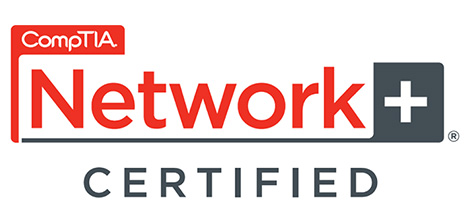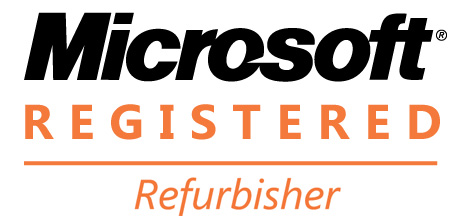The Importance of Responsible ITAD: Why Your Business Needs It
In today’s world of rapid technological advancement, innovation and upgrades are constant. As a result, businesses often find themselves grappling with the challenge of managing obsolete IT assets. This challenge extends beyond the mere disposal of old hardware; it encompasses the broader concept of IT Asset Disposition (ITAD) – a process that involves the responsible and secure retirement of information technology equipment. In this blog post, we will delve into the critical importance of responsible ITAD practices, exploring both the environmental and data security benefits that make it a necessity for businesses today.
The Environmental Imperative
More and more businesses are seeking to minimize their negative impact on the environment. The following are necessary considerations if you seek to move to this eco-friendly position:
- Electronic Waste: A Growing Crisis
The surge in technological advancements has led to a corresponding increase in electronic waste, or e-waste. Discarded computers, servers, smartphones, and other IT equipment contribute significantly to this global crisis. The Environmental Protection Agency (EPA) estimates that in 2018 alone, the United States generated over 2.7 million tons of e-waste. Forecasts predict that this number will double by 2050. Responsible ITAD practices address this increasing environmental challenge head-on. - Sustainable Resource Management
Responsible ITAD involves more than just discarding old hardware; it embraces the principles of a circular economy. Rather than following the linear model of “take, make, dispose,” a circular economy encourages the reuse, refurbishment, and recycling of IT assets. By doing so, businesses contribute to sustainable resource management, reducing the need for extracting raw materials for new devices. - Energy Consumption and Carbon Footprint
The production of electronic devices is energy-intensive, contributing to greenhouse gas emissions. By responsibly managing IT assets through ITAD, businesses can mitigate their carbon footprint by extending the life of devices, thus delaying the need for new manufacturing and the associated energy consumption. - Regulatory Compliance and Legal Responsibilities
Governments worldwide are becoming increasingly aware of the environmental impact of e-waste. Many countries have implemented regulations and laws to govern the disposal and recycling of electronic devices. Businesses that prioritize responsible ITAD practices ensure compliance with these regulations, avoiding legal repercussions and contributing to a more sustainable future.
Data Security: A Non-Negotiable Priority
- Protecting Sensitive Information
In the digital age, data is a valuable asset, and the disposal of IT equipment must be approached with the utmost caution. Simply discarding old devices without proper data erasure measures can lead to severe data breaches, potentially compromising sensitive business information, customer data, and even personal employee details.
- Legal and Regulatory Compliance
Data protection laws, such as the General Data Protection Regulation (GDPR) in the European Union and various data privacy laws in different regions, mandate the secure handling and disposal of personal information. Failure to comply with these regulations can result in hefty fines and damage to a company’s reputation.
- Reputation Management and Trust
A data breach can have severe consequences for a business’s reputation. Clients and customers trust organizations with their sensitive information, and any lapse in data security can erode that trust. Responsible ITAD practices not only protect data but also safeguard a business’s most valuable intangible asset – its reputation.
- Avoiding Corporate Espionage and Cyber Attacks
Improper disposal of IT assets can make businesses vulnerable to corporate espionage and cyber-attacks. Discarded hardware, if not properly wiped of data, can be a goldmine for malicious actors seeking to exploit sensitive information for financial gain or competitive advantage.
Why Your Business Needs Responsible ITAD
- Cost-Effective Sustainability
While the initial cost of implementing responsible ITAD practices may seem like an additional expense, it is crucial to view it as a long-term investment. The cost of managing e-waste, potential fines for non-compliance, and the financial fallout from a data breach far outweigh the initial investment in responsible ITAD.
- Maximizing Return on Investment (ROI)
Responsible ITAD practices, including asset remarketing and resale, can generate revenue that contributes to a positive ROI. Devices that are still functional can find new life in secondary markets, reducing the financial burden of constant technology upgrades.
- Compliance with Industry Standards and Certifications
Engaging with reputable ITAD service providers ensures that businesses adhere to industry standards and certifications. This not only demonstrates a commitment to responsible practices but also provides assurance to clients, partners, and regulatory bodies.
- Employee Morale and Corporate Social Responsibility (CSR)
Employees increasingly value working for organizations that prioritize sustainability and responsible business practices. Implementing responsible ITAD practices contributes to a positive corporate culture, boosting employee morale and aligning with broader Corporate Social Responsibility (CSR) goals.
Choosing the Right ITAD Partner
Selecting the right ITAD service provider is paramount to reaping the benefits of responsible ITAD practices. Here are some factors to consider:
- Certifications and Compliance:
Ensure that the ITAD provider adheres to industry certifications such as R2 (Responsible Recycling) and e-Stewards. Compliance with local and international environmental and data protection regulations is also critical.
- Data Security Measures:
A reputable ITAD service provider employs secure data erasure methods, ensuring that all sensitive information is permanently removed from devices. This may include physical destruction of hard drives for added security.
- Sustainability Initiatives:
Assess the provider’s commitment to sustainability. Do they prioritize reuse and recycling over disposal? Are they actively working towards reducing e-waste and promoting a circular economy?
- Transparency and Reporting:
Transparency in the ITAD process is essential. A reliable provider should offer detailed reporting on the disposition of each asset, including data destruction and recycling methods employed.
Conclusion
The importance of responsible ITAD practices cannot be overstated. Businesses, regardless of size or industry, must recognize the dual benefits of environmental sustainability and data security that responsible ITAD affords. The financial savings, enhanced reputation, and compliance with legal and regulatory frameworks make responsible ITAD a strategic imperative.
By making responsible ITAD a priority, businesses not only contribute to a healthier planet but also protect their most valuable assets – data and reputation. In a world where technology evolves at an unprecedented pace, responsible ITAD is the key to balancing progress with environmental and ethical considerations. As we move forward, let’s ensure that our businesses not only keep up with innovation but also lead the way in responsible and sustainable technology management.






